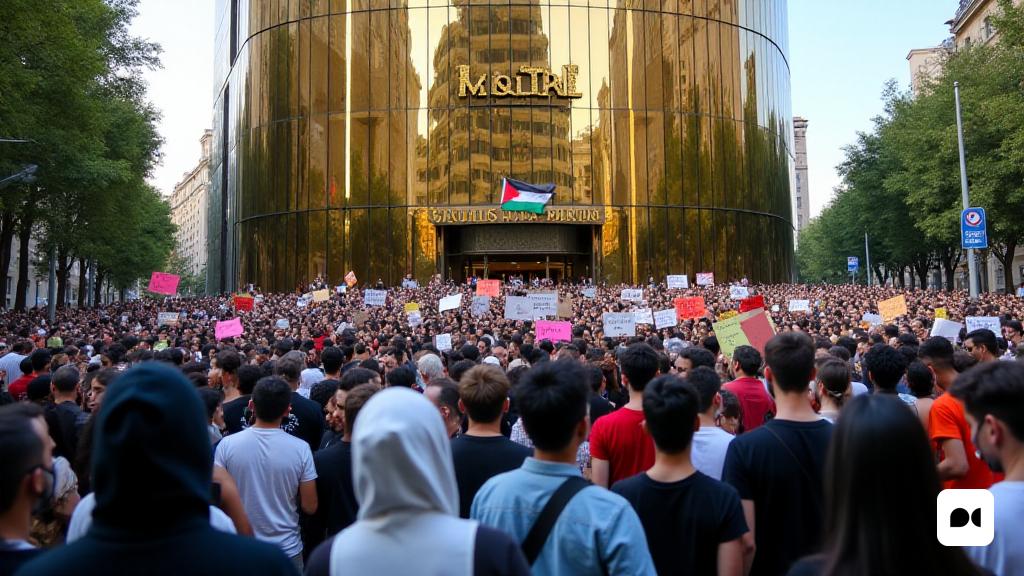An action for social justice
On October 21, 2023, a hundred people mobilized in Barcelona to protest against the atrocities committed in the Gaza Strip. This action, which included the occupation of the accesses of a hotel belonging to an Israeli oligarch with interests in the military industry, captured media care and led to intense debate on social and political responsibility.
The controversial arrest of an activist
A few days later, Esteve C., one of the participants in the protest, was arrested by the Mossos d’Esquadra when leaving his house. His arrest was based on his appearance in images recorded by hotel security cameras, where he was among other activists.
Police proceedings and individual rights
After being transferred to the police station, Esteve went through an identification process that initially seemed routine. However, the officers sought to take the imprints of all the fingers and take photographs, a fact that he questioned, arguing that he needed to speak with his lawyer and that this procedure was not legal.
Defense and legal rules
His lawyer, David Aranda, argued that no individual must be forced to contribute to evidence that may be used against him. This position was supported by a recent decision of the Barcelona High Court, which considered that such diligence can only be performed voluntarily.
Un precedent legal
Nine months after the arrest, the second section of the Barcelona High Court failed in favor of the defense, citing jurisprudence of the Supreme Court, which states that a investigator does not have the obligation to provide elements that may be used in his indictment. This decision not only affects the case of Esteve, but may have more implications for future similar cases.
Reflections on rights in police units
Esteve said that it is essential that the rights of people in arrest be recognized. His experience highlights the need for clarity in police proceedings and the importance of defending individual rights in the face of possible abuse. Aranda emphasized that there are no specific regulations governing the capture of images of the investigators, which generates a worrying legal gap.
The controversy of photo albums in research
This is not the first time that the creation of photographic albums in police contexts has generated controversy. In 2014, during the protests by Can Vies, the use of similar strategies was criticized for identifying protesters. The defenses managed to make these “evidence” declared Nules, demonstrating the importance of surveillance on civil rights in conflict situations.

